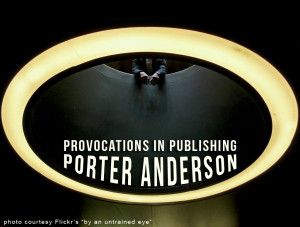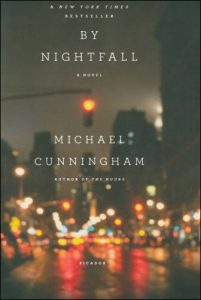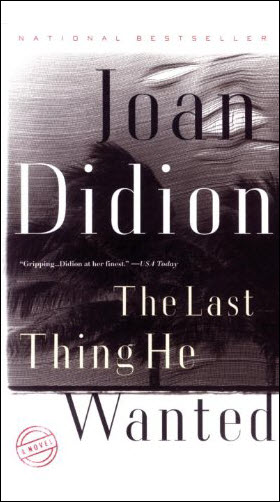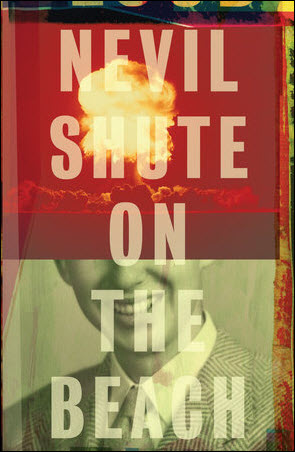The Speed of Literature, and Life
By Porter Anderson (@Porter_Anderson) | February 4, 2020 |

Image – iStockphoto: Valery Ambartsumian
‘The Desire To Change Everything’
In an edition of the interview series First Draft: A Dialogue of Writing excerpted at Literary Hub, the Chilean-American author Isabel Allende says to Mitzi Rapkin, “Literature can maybe change minds, but few people read.

Provocations graphic by Liam Walsh
“Few people allow themselves to be influenced or changed by books,” she says. “It takes a book sometimes decades, sometimes centuries, to have an effect, while journalism is very immediate and very powerful. You have minutes of something on TV, and you can create much more impact than a book can do in many, many years.”
Allende–who has more than 23 books to her name, 74 million copies in 40 languages–is speaking, it turns out, not only as the author we know but as a journalist.
When “the great boom of Latin American literature was a bunch of men” early in her career, she says, she felt she was likelier to be a writer in journalism than in literature.
“I found a job in a feminine, very avant-garde magazine,” she says, “that started to deal with feminism early on when it wasn’t an issue in Chile yet. I had found my perfect niche, and that’s how I began writing. I wasn’t thinking that I was giving a voice to women. It was just random energy and the wish—the desire—to change everything, to change the society, the culture, the religion, everything.”
And it might surprise readers to learn now that she sees books as a slow medium, if you will, by comparison to journalism.
 One reason this has resonance today, of course, is that there are so many political books going to market, covering the fray from both sides of a lot of aisles, not just from the classic conservative and liberal stances. Penguin Press’ January 21 release of Philip Rucker and Carol Leonnig’s A Very Stable Genius arrived at No. 1 in new releases at Amazon, not just in politics but overall.
One reason this has resonance today, of course, is that there are so many political books going to market, covering the fray from both sides of a lot of aisles, not just from the classic conservative and liberal stances. Penguin Press’ January 21 release of Philip Rucker and Carol Leonnig’s A Very Stable Genius arrived at No. 1 in new releases at Amazon, not just in politics but overall.
And yet that, of course, is a book by journalists. Rucker and Leonnig are at The Washington Post. And just making such books current by the time they’re out is no walk through the park. Authors talk of adding new last chapters and addenda at the last moment to account for the latest complication (or tweet) in a current-affairs context that just won’t stand still.
One of the most prominent examples of the moment in direct and timely political content is a memoir that’s almost writing the political scene rather than vice-versa. Leaks and passage descriptions from the manuscript of the former White House national security adviser John Bolton’s The Room Where It Happened (Simon & Schuster, coming March 17) are driving much of the discussion around the impeachment proceedings, particularly the question of new witnesses rejected by Senate Republicans for the trial.
Nevertheless, I’m not sure I agree with Allende in her assessment of the relative impact–or the relative speed of impact–of journalism over books, even literature.
And that’s my provocation for you today.
‘The Beginning of Terror’
Among Michael Cunningham’s novels, By Nightfall (Macmillan/Picador, 2011) is one that has a particularly fast and potent impact.
It opens up a restless understanding of the distance that can exist even inside the most buttoned up of affluent marriages, the art dealer Peter Harris being suddenly caught up by a completely unexpected impression of himself and others.
 Cunningham uses the Rainer Maria Rilke line “Beauty is nothing but the beginning of terror,” and uses the present tense to discover Peter’s descent into self-doubt.
Cunningham uses the Rainer Maria Rilke line “Beauty is nothing but the beginning of terror,” and uses the present tense to discover Peter’s descent into self-doubt.
At one point, Cunningham writes, “Mizzy is becoming—Peter’s not stupid, he’s crazy but he’s not stupid—his favorite work of art, a performance piece if you will, and Peter wants to collect him, he wants to be his master and his confidant (remember, Mizzy, I could blow the whistle at any time), Peter doesn’t want him to die (he really and truly doesn’t), but he wants to curate Mizzy, he wants to be his only … his only.”
 A visceral immediacy stays with you as you read this book, disturbing and curious, relational politics upended. And it’s something swifter than Allende seems to be contemplating, not least because there’s a protective urgency set up in the reader as Peter’s confusion gives way to naive certainty.
A visceral immediacy stays with you as you read this book, disturbing and curious, relational politics upended. And it’s something swifter than Allende seems to be contemplating, not least because there’s a protective urgency set up in the reader as Peter’s confusion gives way to naive certainty.
On our political landscape today, obviously, nonfiction treatments of so many difficult and dangerous social and civic moments must be built to move quickly to market, as authors and publishers expect them to be overtaken by new titles quickly because of the manic energy of our political life. But to my mind, there are books, both fiction and nonfiction, that can move with the speed of journalism through your perceptions, reordering and reshaping your viewpoints and rationales in a single sitting.
 Still, I can’t say that Allende is wrong, either. Probably more than less literature (of all genres, not just literary work) seems to live in a different dynamic, a kind of parallel corridor to the searing rush of news flashes.
Still, I can’t say that Allende is wrong, either. Probably more than less literature (of all genres, not just literary work) seems to live in a different dynamic, a kind of parallel corridor to the searing rush of news flashes.
But I’ll give you two more exceptions to Allende’s observation to consider: Joan Didion’s The Last Thing He Wanted and, as I’ve mentioned here before, Nevil Shute’s On the Beach, both from Penguin Random House / Vintage.
And what do you think of the comparative impact of books and journalism? What do you make of Allende’s sense of a slower way into the culture for books than news? Do you have a ‘By Nightfall’ in your reading life that turned you around as fast as breaking news?
[coffee title=”Wish you could buy Porter a glass of Campari?” icon=”glass”]Now, thanks to tinyCoffee and PayPal, you can![/coffee]









Porter, I was a semi-Catholic Irish-Italian girl from New Jersey when my new best friend at Art school put a stack of books in my hands. Eli Wiesel’s ‘Night’, ‘Dawn’, and ‘Day’. To say they rocked my culturally-narrow world would be an understatement. More recently, I read ‘The Winds of War’ and ‘War and Remembrance’ by Herman Wouk, having passed them up for ‘Marjorie Morningstar’ in my youth (not to say that book didn’t have impact, because it so did), but the relevance of those two books to the present day mess is stunning. Over the past three years, I’ve become a voracious reader of certain journalists. Douthat, O’ Dowd, several writers on Project Syndicate I’ve also started reading the Times of London. I’m impacted by it all. But for me, fiction offers the slow burn that doesn’t go away. Thanks for the provocation.
Journalism: fast. Fiction: slow. Immediate political jolts versus enduring human truths. I would agree with that dichotomy, except…
…when we watch the news, the latest earthquake, pandemic, mass shooting or Washington outrage fills us with horror and sorrow but it is at a remove. We know in the abstract that cutting back Medicaid will harm our community. It’s outrageous that Nigerians are now banned from travel to the U.S., but the effect on most of us is indirect. We have a buffer. It’s a shame but it’s not exactly happening to us. When we read fiction, though, the effect is immediate. We sink into the story, become the characters.
Currently, I’m reading To Kill a Mockingbird aloud to my son. The novel was published sixty years ago, in 1960, and yet Scout aiming for Miss Maudie’s “generous” rear end with her air rifle and Jem’s awe as his father on the same afternoon demonstrates dead aim with a real rifle, are moments so vivid they are happening right now. To us. Or so it feels. Later on, the trial of Tom Robinson makes us still angry today. Atticus’s solitary walk away from the courtroom brings tears to my eyes every time.
So, fast or slow? I would say that the more accurate dichotomy is between distantly alarming and instantly moving. Journalism is utterly necessary and often powerful, don’t get me wrong. It’s greatest power, though, ask me, is when it turns topical issues into human stories.
Stories about people–which is what fiction does all the time. The topic power of novels is weak for a lot of reasons; better to leave that to reporters. But for immediate impact, an emotional experience that changes us, give me novels. Slow? I don’t think so. News raises alarms, but novels transform hearts. Fast.
Hi Porter, Maybe it’s the journey of the particular writer AND READER, that we need to be considering. The above comments all ring true, but they are individual responses. How wonderful if a novel could truly “change people’s thinking.” Many have. And so has non-fiction. But then we are talking numbers. Always numbers. In our wide-flung world, where there are so many choices, you can stay in your aisle and never look beyond to someone else’s thinking, emotions or experiences. It’s amazing to me how ignorant people are, even people in power. I will read as long as I breathe. I will write also, trying to create something that speaks to others, that opens minds. That’s what writers do.
On The Beach has faded a bit, mainly because its treatment of women is dated, but the book is undeniably powerful even many years after its publication.
Changing how people think – the few people you can affect by your subtext – is still worth doing, especially when there is no other way to get past their defenses than showing them a character living in a way they’d never choose. Assuming you can get them to read in the first place by providing enough chocolate so they don’t even know there’s a pill buried in it.
To do this, you have to write better than most authors are willing to take the time to learn.